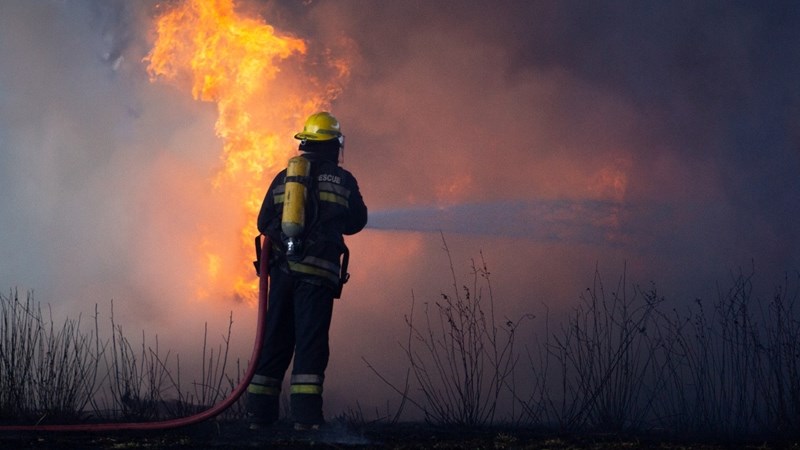Agriculture
Veld #fires in Free State show considerable increase─── ELSABÉ RICHARD 05:00 Mon, 18 Jul 2022

Veld fire incidents in the Free State have increased by more than 293% in the last three years.
This shocking percentage was made known by Johan Breytenbach from the Free State Umbrella Fire Protection Association (FSUFPA), during a fire awareness day.
See PODCAST below
Breytenbach emphasised that during the last five years, there has been a 136,25% increase in affected areas in terms of veld fires in the Free State.
ALSO READ: Working on Fire ready for the fire season
He adds that climatic patterns have an influence on the biofuel that is available in the veld. This is especially seen when it is a dry season and a lot of biofuels are available, which results in veld fires spreading easily.
In 2021, more than 17 000 veld fire incidents were recorded in the Free State. This equates to 740 000 hectares of land being affected by veld fires in the province in that year.
Economic impact of veld fires
Breytenbach further highlighted that the economic impact of veld fires can be massive.
He shared that the tourism sector, which plays a crucial role in the economy of the Free State, can be heavily impacted by veld fires.
With that, the agriculture sector also runs the risk of being heavily affected. Farmers can lose animals, infrastructure, and crops. This, in turn, has an impact on their finances and food supply to local markets.
LEES OOK: Inwoners bekommerd oor brand oos van Bfn - VIDEO, FOTO'S
Breytenbach added that comanages are also at risk of being impacted by veld fires. He shared that research shows that 60% of comanage users are women and that the vast majority of comanage users are single-parent households. So, if a veld fire were to rip through a comanage, families will be negatively affected.
The responsibility to prevent veld fires
The National Veld and Forest Fire Act places the primary responsibility for managing veld fires on land owners and users.
The Act requires the land owner to have trained personnel and equipment. He or she also has an obligation to prevent a fire from starting and spreading further.
Breytenbach explains that the Act makes further provision for the collective management of the veld fire risks by the establishment of fire protection associations (FPA) such as FSUFPA. He emphasises that these associations do not replace fire services, neither does it replace disaster management. “It is a body that is a non-governmental organisation that enables the collective management of the wildfire risk.
“The FPA needs to function as a community-based organisation that allows for broad participation, because everybody’s veld fire and land risks are not exactly the same. But we need to find common management for that veld fire risk.
“We cannot just let a particular segment take responsibility,” said Breytenbach.














